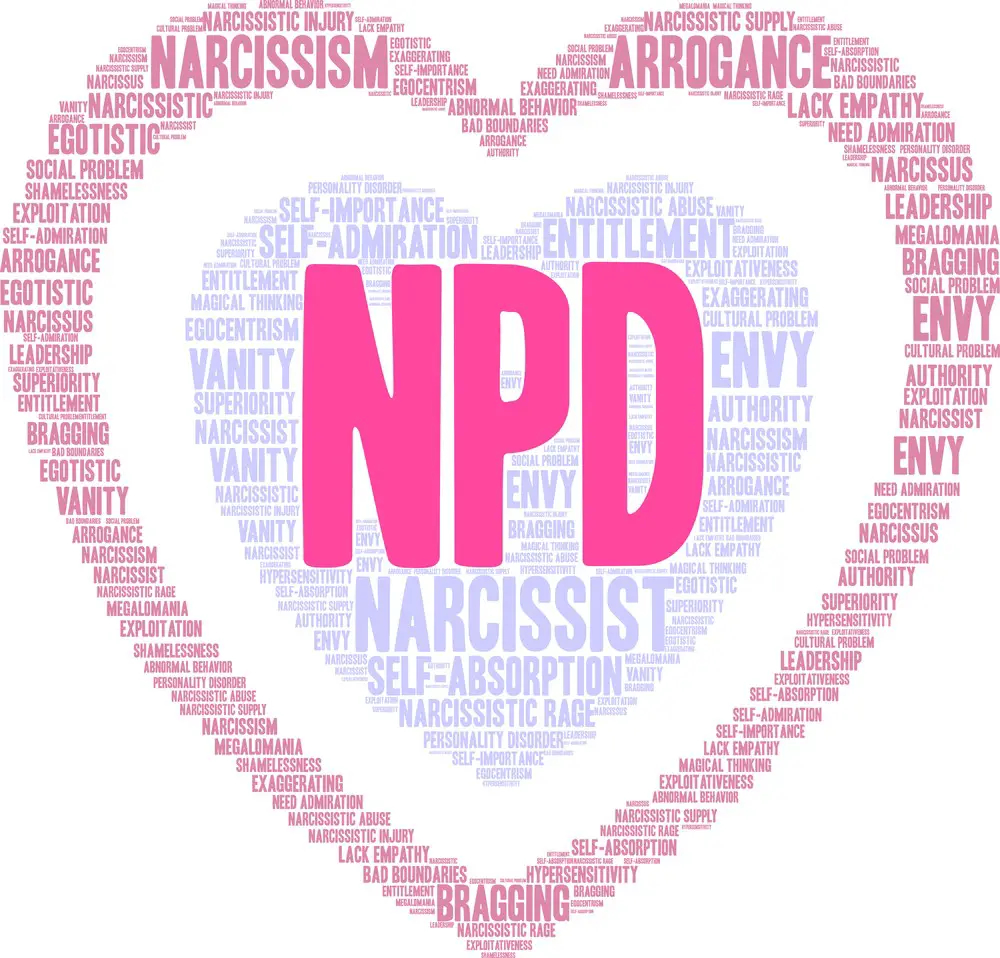As a BetterHelp affiliate, we receive compensation from BetterHelp if you purchase products or services through the links provided
The question of whether a narcissist can be faithful is intriguing, considering the unique traits and tendencies associated with narcissistic personalities. An excessive need for admiration characterizes narcissists, an inflated sense of self-importance and a lack of empathy toward others, which can lead to manipulation and exploitation in relationships. Consequently, understanding the nature of how a narcissist operates in the context of romantic relationships is essential to evaluate the likelihood of their fidelity.
It is important to remember that narcissism exists on a spectrum with varying degrees of intensity. Some individuals may possess narcissistic tendencies without fully fitting the criteria for Narcissistic Personality Disorder, as per the Diagnostic and Statistical Manual of Mental Disorders (DSM-5). This makes it challenging to provide a one-size-fits-all answer to the question of a narcissist’s faithfulness. However, examining their inherent traits, needs, and behavioral patterns can offer insight into how these individuals may approach romantic commitments and navigate partnerships.
Key Takeaways
- An excessive need for admiration, inflated self-importance, and a lack of empathy defines narcissists
- The question of faithfulness in a narcissist is complex due to the variation in the degree of narcissistic traits
- Assessing their inherent traits and behavioral patterns can offer insight into a narcissist’s approach to commitments and partnerships
Understanding Narcissism
Narcissistic Personality Disorder
Narcissistic Personality Disorder (NPD) is a mental health condition characterized by an inflated sense of self-importance, a deep need for admiration, and a lack of empathy for others. People with NPD often have a grandiose sense of self and believe they deserve special treatment. They may also feel entitled and easily become envious or feel threatened by others’ accomplishments.
Overt and Covert Narcissists
Narcissists can be divided into two categories: overt and covert. Overt narcissists are outwardly charming, confident, and self-assured. They often seek attention and admiration from others and may boast about their accomplishments. Covert narcissists, on the other hand, tend to be quieter and more reserved. They may hide their true feelings, instead manipulating others’ emotions to gain power and control.
Malignant Narcissists
Malignant narcissists exhibit a more extreme form of narcissism. They possess traits from both overt and covert narcissists and often display antisocial behavior. This form of narcissism is dangerous, as malignant narcissists can be emotionally abusive and deceitful and may use ruthless manipulation to achieve their goals. Their lack of empathy and sense of entitlement can make maintaining long-term, healthy relationships challenging.
To answer whether a narcissist can be faithful, it’s essential to understand the individual and their specific narcissistic traits. Their capacity for loyalty will largely depend on their ability to empathize and maintain a healthy, balanced relationship. However, it is crucial to approach such situations cautiously, as narcissistic behavior can be damaging and toxic.

Faithfulness and Narcissists
Ego and Relationships
Narcissists focus significantly on their ego, often leading to self-centeredness in relationships. Their main concern is maintaining a superior image rather than prioritizing their partner’s well-being. This often results in them seeking validation outside of their existing relationship. They may find it difficult to remain faithful as their constant need for attention and admiration may lead them to seek additional sources of gratification.
Lack of Empathy
One core characteristic of narcissists is their lack of empathy for others. They often struggle to understand the feelings or needs of their partner, and this emotional disconnect can create challenges in maintaining a healthy relationship. When it comes to fidelity, their inability to empathize with the emotional consequences experienced by their partner in the event of infidelity may further diminish their motivation to remain loyal. Consequently, the lack of empathy may contribute to cheating behavior.
Insecurity and Validation
Insecurity is another common trait among narcissists that impacts their ability to be faithful. They are often plagued with feelings of inadequacy and self-doubt, which drive them to seek validation in every aspect of life. This may manifest as a constant need for external validation in relationships, making it difficult for them to feel satisfied within a monogamous relationship. This incessant search for validation can make them unfaithful in pursuing constant affirmation from others.

Infidelity Among Narcissists
Tendencies and Patterns
Narcissists are often more prone to infidelity than others, as their focus on self-gratification and lack of empathy can lead them to prioritize their desires over the well-being of their partners. Cheating may be driven by their underlying need for narcissistic supply – the adoration, approval, and attention they constantly seek from others. This can result in a pattern of unfaithful behavior and a disregard for the concept of monogamy.
Attention-Seeking Behavior
Infidelity in narcissists may also stem from their attention-seeking behavior. Narcissists thrive on the validation they receive from others, and this need for attention often extends to their romantic relationships. While they may initially be committed to a partner, they may seek additional sources of admiration and validation over time. In some cases, they may engage in flirting, indulge in flings, or even pursue full-blown affairs to satisfy their craving for attention.
The Thrill of the Chase
Another factor contributing to narcissists’ infidelity is their love for the thrill of the chase. They often enjoy the excitement and challenge of seducing new partners, as it validates their self-worth and boosts their ego. For some narcissists, the act of pursuit itself may be more enticing than the sex or the relationship that follows. Consequently, they may lose interest once they have “won” the object of their desire, leading them to look for the next “conquest” – and repeat the cycle of infidelity.
One key characteristic many narcissists share regarding infidelity is a lack of remorse. Unencumbered by guilt or empathy, narcissists cannot often feel genuine remorse for their actions. As such, they may rationalize their unfaithful behavior as justified or deserved, all while continuing to engage in it.
Can a Narcissist Be Faithful?
Self-Control and Change
Narcissists can struggle with self-control, particularly when it comes to their relationships. It is important to remember that narcissism exists on a spectrum, and not all narcissists will exhibit disloyal behavior. Having hope in change and addressing their behaviors may increase their potential for faithfulness. A narcissist’s ego can hinder their ability to feel compassion and care for another person. However, they can consciously commit to working on these aspects of themselves.
Therapy and Personal Growth
Therapy and personal growth are essential for a narcissist to be faithful in a relationship. A therapist can help narcissists work on their commitment and understand the importance of connections in a relationship. Therapy can also help address the narcissist’s propensity to “love bomb” their partner. This refers to the initial stage where they shower their partner with affection, only to withdraw it later. A narcissist can develop a more sincere understanding of love and commitment through therapy.
Reframing Relationships
For a narcissist to be faithful, they must reframe how they perceive relationships. This means moving away from viewing relationships as a means for self-validation and ego-boosting. Instead, they should focus on genuine connection, emotional support, and mutual growth. A healthy and faithful relationship requires open communication, trust, and a shared commitment.
- Genuine connection: Focusing on forming a deep and meaningful bond with their partner.
- Emotional support: Providing and receiving emotional support in the relationship.
- Mutual growth: Being open to growing together emotionally and spiritually.
Protecting Yourself from Narcissistic Relationships
Recognizing the Signs
To protect oneself from narcissistic relationships, it is crucial to recognize the signs of a narcissist. A partner with narcissistic tendencies often thrives on drama and has an exaggerated sense of self-importance. Their desires come before others and may show a pattern of betrayal or emotional abuse.
Some common signs include constant mood swings, a lack of empathy, and an inability to appreciate or respect their partner’s feelings. Be cautious when a love interest seems too focused on their needs, intelligence, and successes while dismissing or belittling others.
Setting Boundaries
Setting boundaries is essential in protecting oneself from a potentially hurtful relationship with a narcissist. Maintaining independence and establishing clear boundaries can help prevent emotional manipulation and abuse.
Here are some tips for setting boundaries:
- Clearly communicate your needs and expectations
- Do not tolerate disrespectful behavior
- Limit contact when necessary
- Stand firm in your decisions
Maintaining Self-Worth
In a relationship with a narcissist, it’s important to maintain self-worth and prevent a broken heart. Individuals in these relationships often experience low self-esteem due to constant manipulation and criticism. Stay aware of your happiness and well-being, and remember that your feelings and opinions hold value.
To build and maintain self-worth in a narcissistic relationship:
- Revisit personal goals and achievements
- Surround yourself with supportive friends and family
- Seek professional help if needed
- Remember that true love involves mutual care and respect
By staying vigilant of the signs, setting clear boundaries, and focusing on self-worth, one can navigate and protect themselves from the potentially dangerous landscape of narcissistic relationships.
Frequently Asked Questions
Can narcissists commit long-term?
Narcissists can commit to a long-term relationship but often struggle with maintaining a healthy and balanced partnership. Their primary focus is on their needs and desires, making it difficult to prioritize their partner’s feelings and well-being consistently.
Do narcissists usually cheat?
While not all narcissists cheat, their need for attention and admiration can lead some to seek validation outside their primary relationship. This may make them more prone to infidelity than others. However, it is essential to remember that not every narcissist engages in deceitful behavior.
Can narcissists change for love?
Change is possible for narcissists, but it often requires substantial self-awareness and commitment to therapy. Love can motivate change, but individuals must recognize their unhealthy behaviors and genuinely desire improvement. Change should not be expected solely due to their partner’s influence.
Do narcissists’ have the ability to love?
Narcissists are capable of experiencing love, but their understanding and expression of it may differ from what others perceive as genuine love. Their tendency to focus on themselves can make it challenging to genuinely prioritize another person’s needs, making their love seem more superficial or conditional.
Can narcissists be in happy marriages?
Narcissists can be in happy marriages, but it depends on several factors. Some of these factors include the level of narcissistic traits, the willingness to work on these traits, and the partner’s ability to understand and cope with the narcissist’s behaviors. In a healthy marriage, both parties must contribute to the relationship and prioritize the other’s happiness.
Can narcissists care for kids?
Narcissists can care for their children, but their parenting style may not always prioritize their child’s emotional and psychological needs. They may focus on superficial aspects, such as appearance or achievements, rather than nurturing a healthy emotional bond. With increased self-awareness and therapy, narcissistic parents can improve their caregiving skills and prioritize their children’s needs.
- Stress Management: What is the Relationship Between Stress and Addiction? - June 28, 2024
- Exploring Techniques to Maintain a Healthy Lifestyle without Drugs - May 28, 2024
- How Acupuncture Helps Treat Chronic Fatigue Syndrome - May 28, 2024
This site contains affiliate links to products. We will receive a commission for purchases made through these links.






